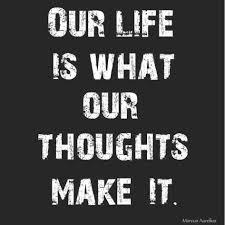 Do you believe you can become more talented if you work at it, or are you stuck with "just" your innate abilities? This is vital to consider, because it affects so much of what you attempt to do (or not). For example, think about something you wish you were better at doing -- and what you've thought and done about it. Your mind set on this point creates a self-fulfilling prophecy. Dubbed "the Effort Effect," your view of the nature of ability shapes your performance.
Do you believe you can become more talented if you work at it, or are you stuck with "just" your innate abilities? This is vital to consider, because it affects so much of what you attempt to do (or not). For example, think about something you wish you were better at doing -- and what you've thought and done about it. Your mind set on this point creates a self-fulfilling prophecy. Dubbed "the Effort Effect," your view of the nature of ability shapes your performance.
In the Stanford University alumnae publication, Marina Krakovsky reports on Carol Dweck's research: If you believe that ability is "God-given" or intrinsic, you are more risk-averse. You are less likely to listen to criticism. You give up sooner. You feel more threatened by others' achievements. You have a "fixed mind set."
Alternatively, if you have a "growth mind set," you believe you can improve with practice, you are more likely to practice longer, take more risks, incorporate feedback and observance of others' success into your practice. To help change your mind set (and that of your children), read a related article by Ashley Merryman and Po Bronson, "The Inverse Power of Praise," Learned Optimism by Marty Seligman and Carol Dweck's book Mind Set -- The New Psychology of Success. Like Seligman, Dweck and Ellen Leggett offer insights on moving from a "helpless" response pattern to one that is "mastery-oriented."
Tip: As Paul Hebert noted, you can encourage others to have a growth mindset "through recognizing and rewarding the process of experimentation -- attaching value to mistakes that move you closer to the solution."
To reinforce your ability to grow and your likeability, become, not just more tolerant of others who have different beliefs but actually find ways to like those "wrong" people. See Ben Casnocha's comments on Professor Todd Pittinksy's article in The Economist, on the power of allophilia.
That's not so easy as we think because, according social psychologist, Glenn D. Reeder, we are simply not very good at stepping into the others person's shoes. In fact, he found that, "on any number of hot-button issues, people seem hard-wired to believe the worst about those who disagree with them."
Yet we can always choose channel our desire to connect well with others, with this thought from George Leonard:
There is a human striving for self-transcendence. It's part of what makes us human. With all of our flaws we want to go a little bit further than we've gone before and maybe even further than anyone else has gone before.